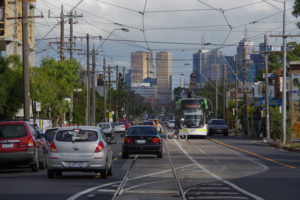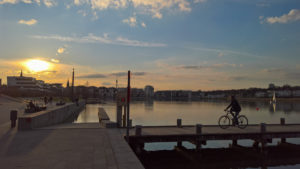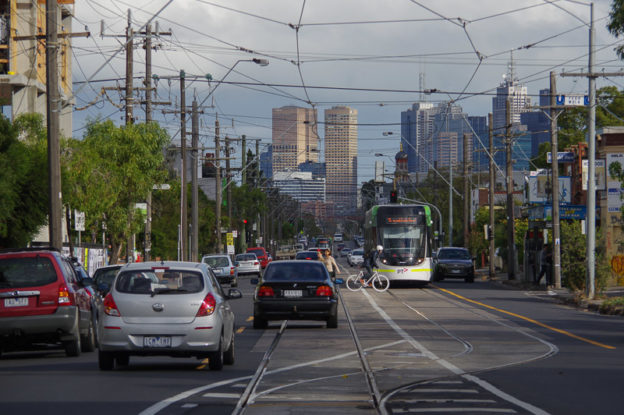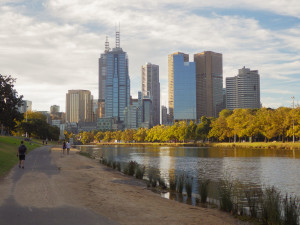The question how planning research can be accessed and used as well as how collaboration between researchers and practitioners in urban planning works or can work is as important as ever – and potentially even more important given new and urgent global challenges. During my time as a Visiting Research Fellow of RMIT University, Centre for Urban Research, in Melbourne last year, I came across the work of Joe Hurley and Elizabeth Taylor in Australia (titled ‘Not a lot of people read that stuff’; see references below). We got to talk about their work and my work as a member in the working group ‘Mind the Gap – Cooperation and Self-Images in Spatial Planning‘ within the German Academy for Spatial Research and Planning (ARL). We saw both, large overlaps and striking differences.

The idea emerged to go deeper in comparing our work and to look across our different planning contexts. We developed a simple structure along the three challenges of access, use and collaboration to structure our thoughts. A first list of ideas was the starting point for discussions about a short article on our insights. As it happens, we ran across Libby Porter who is responsible for the Interface section of Planning Theory & Practice. The idea was born to go deeper into work and accept the challenge of inviting both, practitioners and researchers, to comment on our ideas and to join our work. We got Dominic Stead, Meike Hellmich/Linda Lange, Helen Rowe, Sonja Beeck, Peter Phibbs and Ann Forsyth to buy in into our joint challenge. Our aim was not only to talk about practice, but involve practitioners as authors within the Interface. The work began in May 2015 right before I left Melbourne. It continued to be a highly challenging endeavour for all of us involved. Luckily, we managed to keep the schedule and finish the work in April 2016. It took many loops of changes, of adjusting, of discussing and of mutual learning before completion. Finally, we added more ideas on an international perspective about the exchange between researchers and practitioners and an international practice. Ideas that emerged during our work.
And, now, our final piece is available in Planning Theory & Practice as Interface in Volume 3/2016:
http://www.tandfonline.com/doi/full/10.1080/14649357.2016.1190491
It was helpful for us to have a very simple framework that was actually the first idea and starting point we had: to focus along the three challenges of access, use and collaboration (roughly in accelerating order). Even these simple terms turned out to mean quite different things for all people involved. We did not go deeper into aspects of evaluating research outputs and impacts – there is a newly emerging discussion in Australia to encompass broader impacts in addition to traditional academic output. German planning research institutes also look for new ways of analysing their research impacts and its ‘use’ for society. The term transdisciplinary is ever-present, and important focus point for many discussion on future planning research. For us, there was a common interest of both, researchers and practitioners, to have at least some research done that looks beyond direct impacts in practice and questions actions and beliefs on a broader level. Distinguishing between research and investigation (as Ann Forsyth does in our Interface) might help to leave space for both, without confusing different roles of researchers.
It would be especially worthwhile to think about further ways to foster more international exchange in practice. There is still a lot of underused potential for engagement beyond a narrow or local approach. Social media platforms might be an important key for they are easily accessible, allow for exchanging preliminary ideas and support a fast exchange of knowledge across different contexts. A basis for this need to give special regard to differences in language, working cultures, technical and legal requirements as well as personal attitudes towards planning work of all those involved. I do personally think that many planners have too much fear (of politicians, of the public, of their managers etc.) to engage in open talks about really different options and ways of planning, so it would be good getting more ideas how to work with these practical realities.

It would be wonderful to take part in further discussions around the topic of research-practitioner exchange and in looking beyond national borders (towards a more international practice) and beyond traditional methods and vehicles (towards both more use of social media platforms and more routinized forums for exchange outside daily practice). There is still a lot to discover, to try and to learn.
Thanks to everyone involved during the year of work on this joint project that!
References
- Hurley, J., & Taylor, E. J. (2015, March 9). ‘Not a lot of people read the stuff’: how planning defies good theory. The Conversation. Retrieved from https://theconversation.com/not-a-lot-of-people-read-the-stuff-how-planning-defies-good-theory-38234
- Hurley, J., Lamker, C. W., Taylor, E. J., Stead, D., Hellmich, M., Lange, L., . . . Forsyth, A. (2016). Exchange between researchers and practitioners in urban planning: achievable objective or a bridge too far? Planning Theory & Practice, 17(3), 447–473. doi:10.1080/14649357.2016.1190491
- Taylor, E. J., & Hurley, J. (2016). “Not a Lot of People Read the Stuff”: Australian Urban Research in Planning Practice. Urban Policy and Research, 34(2), 116–131. doi:10.1080/08111146.2014.994741

